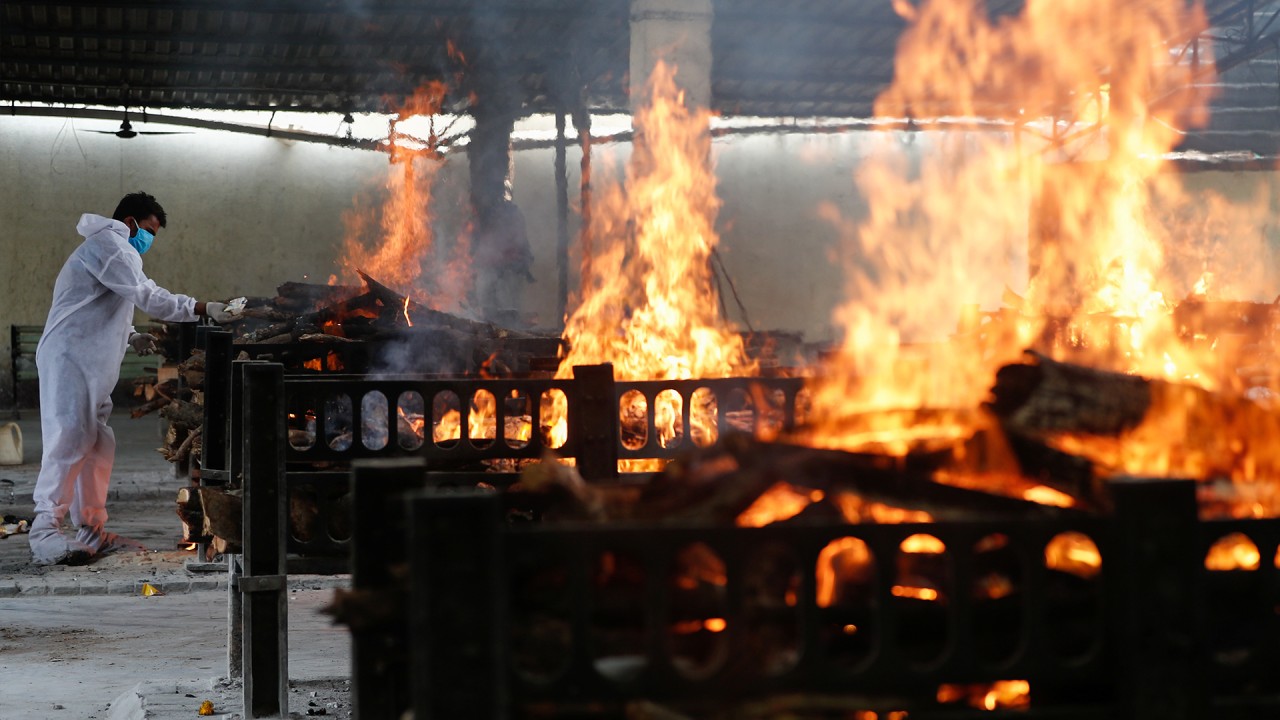
Fosun Pharma stock upgraded, other Chinese vaccine producers to profit from inoculation drive, analysts say
- An index of vaccine makers in mainland China has risen 6.2 per cent this year, outpacing the CSI 300 Index’s 1.5 per cent drop
- Valuations and patent waivers are among key challenges to bullish profit outlook, analysts say
Beijing announced in March that 40 per cent of its 1.4 billion population would be vaccinated by June, with an estimated 70 to 80 per cent to be fully inoculated by early next year, if vaccine production is guaranteed. The government will foot the bill.
Daily inoculations could reach 20 million if needed, the equivalent of roughly half of the population of California, according to Shao Yiming, a researcher with the Chinese Centre for Disease Control and Prevention. With increased supplies of vaccines in the second half, herd immunity could be achieved within 2021, he told state broadcaster CCTV last week.
An index of vaccine makers and those in the supply chain has risen 6.2 per cent this year, according to Eastmoney.com, outpacing the 1.5 per cent decline in the CSI 300 Index. The gauge, which tracks 61 companies including Shanghai Fosun Pharmaceuticals and CanSino Biologics, reached its highest level since November 13.
Sinopharm Group, whose vaccine was approved for emergency use by the World Health Organization (WHO) this month, has risen 36 per cent this year to HK$25.55. Fosun Pharma rallied 59 per cent to HK$58.85.
CanSino Biologics started producing its one-shot vaccine last month at its Tianjin facility with an annual capacity of 200 million to 300 million doses. Its stock has appreciated 95 per cent this year to HK$344.
“The approval of Fosun Pharma’s new vaccine could generate huge profit flexibility to the company in the short term,” Soochow Securities analyst Zhu Guoguang said in a report on May 10.
Vaccine makers will continue to be in focus through 2023. While most developed countries will be fully vaccinated by the end of 2021, developing countries could take up to two years to reach herd immunity, according to Tony Ren, head of North Asia health care research at CLSA.
The brokerage, part of Citic, has an outperform rating on CanSino, although its current price of HK$344 has exceeded its price target of HK$310.
The support for patent waivers would create more uncertainty about share prices of vaccine makers going forward, said Stanley Chan, director of research at Emperor Securities. More competition means it will be tougher to generate huge profits from the pandemic, he added.

02:39
At least 13 killed in Indian hospital fire as country gripped by new coronavirus variant
Notwithstanding the issue, Chinese vaccine makers should also be looking forward to growing their export markets as the pandemic situation worsens from Japan to Southeast Asia and India, Invesco’s Liu said.
India’s second wave of coronavirus has sent infection levels beyond 25 million and deaths to more than 280,000. The B. 1.617.2 virus variant, which was first reported in India, has spread to 44 nations, including Japan, where a state of emergency has been imposed on Tokyo and other prefectures.
A resurgence in infections in Singapore has also forced the Southeast Asian nation back into lockdown-like conditions. A second attempt to create a travel bubble with Hong Kong has stalled.
The emergence of coronavirus mutations from India would increase “demand for the development of new vaccines and potentially require people to take extra doses to cope with the mutants”, said Liu of Invesco. “The assumptions of repeated annual vaccinations might last for a longer than expected time, possibly for at least two to three years.”

